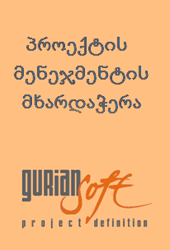Azerbaijanians
 Practically all ancestors of Azerbaijanians, residing in Georgia, came from Persia and Turkey in the late feudal epoch. Their settlement was dictated by the military-political intentions of external aggressive forces that planned colonization of southwest provinces. Iranian and Turk conquers, as a result of permanent attacks on Georgia, often applied to settle Turkish tribes on the lands, which were occupied by the Georgian population before. New settlements gradually inhabited desert Georgian villages. Large number of native residents of these villages sacrificed to unequal struggle, many were taken as captives in foreign countries and survived persons were forced to shelter in other areas of the homeland.
Practically all ancestors of Azerbaijanians, residing in Georgia, came from Persia and Turkey in the late feudal epoch. Their settlement was dictated by the military-political intentions of external aggressive forces that planned colonization of southwest provinces. Iranian and Turk conquers, as a result of permanent attacks on Georgia, often applied to settle Turkish tribes on the lands, which were occupied by the Georgian population before. New settlements gradually inhabited desert Georgian villages. Large number of native residents of these villages sacrificed to unequal struggle, many were taken as captives in foreign countries and survived persons were forced to shelter in other areas of the homeland.
Vakhushti Bagrationi tells about one of these facts: When Shah-Abas bereaved white fortress, called as Aghjakala fortress, of King George (1600-1605), "He brought Elni Borchalu and settle here, and because of this was given the name Borchalu". The same Shah-Abas exiled tens of thousands Georgians from Kakheti to Persia in the first quarter of XVII century. There were many cases when other nations settled on the territory of Georgia as a result of various military-political moves. Part of them mixed with local Georgian population and experienced assimilation, the rest managed to sustain their nationality.
Important migration, between Azerbaijanians in XIX-XX centuries, did not take place from other non-Georgian population. Their youth goes to the cities of neighbor Azerbaijan (advantageously in Baku) only lately for higher education. Growth in Azerbaijanian people was relatively slow in pre-Revolutionary period and during five years before war. As for the second half of last century, growth in Azerbaijanian people is very rapid; it exceeds all other ethnic groups of the Georgian population with its rate of growth. It must be mentioned, that numeration of Azerbaijanians wholly increases as a result of natural addition, with this figure they exceed average republican datum. It will be enough, if we mention, that numeration of the whole population of Georgia increased by 24% during 20 years (1959-1979), Azerbaijanians by 66%, i.e. their average annual growth was 2,66%. This was happening when external migration procedures had faintly expressed, but still negative balance between Azerbaijanians in the above-mentioned period. It must be marked that Azerbaijanians do not experience assimilation with other nations. 

In contrast to Russians and Armenians, most part of Azerbaijanians who settled in Georgia, lives in villages. 18,2 percent of their total amount lived in the towns of republic in 1970. 12, 9 thousand Azerbaijanians lived in Tbilisi in 1979, 7,4 thousand in Rustavi. Azerbaijanians exceeded other inhabitants of Qvemo Qarthli villages (in regions of Marneuli, Bolnisi, Gardabani and Dmanisi). Kakheti is the second site of their resettlement-territory of Sagarejo, Lagodekhi and Thelavi regions. Azerbaijanian villages exist in Shida Qartli - Kaspi, Mtskhetha and Qareli regions, also in Thrialeti and Thethritskaro regions. Number of Azerbaijanians in other regions of the republic is relatively insignificant.
It is characterizing that number of people who recognize Azerbaijanian as mother-language is much more than itself population of this nation. Approximately 27 thousand Greeks, exiled from Turkey, recognize Azerbaijanian as mother-language. This part of Greek people - who lived in surrounding of Turks during long time, who were called Urumians and live in Trialeti now - lost own language and adapted to Azerbaijanian.
According to the census of 1865 Azerbaijanian population in Georgia was 51,5; in 1886 - 62,6; in 1897 - 81,1.
After this we have the census of 1926, according which the total of Azerbaijanian population in Georgia was 143,951; According to the census of 1939 in Georgia were living 187,621 Azerbaijanians; in 1959 - 153,6; in 1970 - 217,8; in 1979 - 255,7; in 1989 - 307,5.
According to the census of 2002 in Georgia, 284,761 Azerbaijanians lived in the country and 10,942 of them resided in Tbilisi.
Sources:
- V. Jaoshvili, Georgian population in XVIII-XIX centuries, Tbilisi 1984, pages 231-232.
- V. Jaoshvili, Georgia`s population, Tbilisi 1996, pp.112-290;
- Principal results of census of the Georgian population, Tbilisi 2002, vs. I-II.






